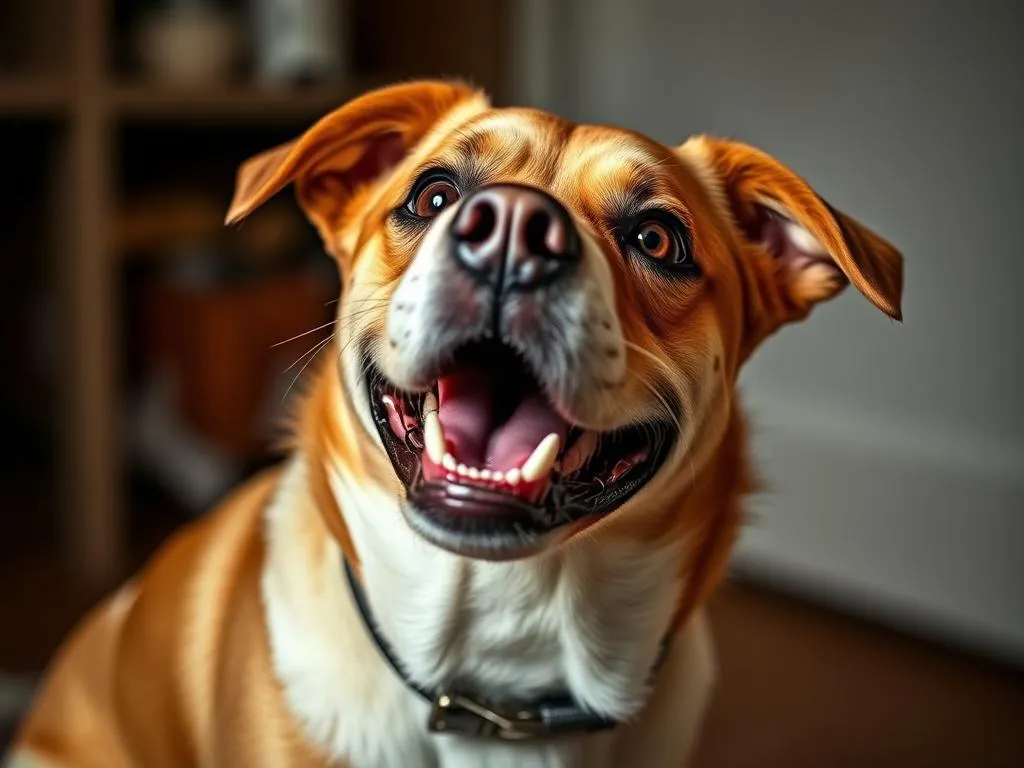
Understanding if dogs have a good sense of humor requires delving into their behavior and cognition. The term ‘sense of humor’ often encapsulates the ability to appreciate or perform amusing acts, typically involving wit, irony, or absurdity. When considering humor in dogs, it’s essential to explore their social behavior, intelligence, and how they relate to humans. Recognizing humor can significantly enhance the bond between dogs and their owners, enriching daily interactions and strengthening companionship.
Understanding Dog Behavior
Canine Intelligence
Dogs are known for their remarkable cognitive abilities. Studies have revealed that they can understand human emotions, learn commands, and even solve problems. This intelligence is crucial when exploring whether dogs have a good sense of humor. For instance, a dog’s ability to understand the context of a situation can indicate a form of humor recognition. If a dog can differentiate between serious tones and playful ones, it may also grasp when something is funny.
Social Behavior in Dogs
Dogs are inherently social animals, often living in packs or familial groups, which influences their behavior. This pack mentality fosters a strong need for social interaction and play. Engaging in playful activities is vital for dogs, not only for their health but also to strengthen relationships within their social circles. Humor often thrives in social settings, making it plausible that dogs might exhibit humorous behaviors during interactions.
The Science Behind Humor
What Is Humor?
Humor is a complex concept that encompasses various types, including physical, situational, and verbal humor. While we often associate humor with verbal wit, dogs primarily engage in physical and situational humor. Their antics during playtime, such as chasing their tails or performing unexpected jumps, can elicit laughter from their human companions.
Humor in Animals
Research into humor across different species has shown that animals like primates and dolphins display behaviors that suggest a sense of humor. In dogs, studies have started to emerge that explore their responses to humorous stimuli. For instance, dogs may respond to playful teasing or funny sounds with excitement or playful behavior, indicating a possible understanding of humor.
Signs That Dogs Might Have a Sense of Humor
Playful Behavior
One of the clearest indicators that dogs have a good sense of humor is their playful behavior. Dogs often engage in antics that can be perceived as humorous. For example, when a dog performs a play bow—where they lower their front legs while keeping their rear end up—it signals readiness to play and can be comically adorable. Other amusing behaviors include the infamous “zoomies,” where dogs sprint around in excitement, often leading to unexpected tumbles and spills.
Reaction to Human Humor
Dogs often respond to their owners’ laughter or playful teasing. When a dog hears its owner giggling or see them engaged in a funny act, they may react with enthusiasm, joining in the fun. Anecdotes abound of dogs reacting to funny situations, such as barking at strange sounds or mimicking their owner’s laughter, suggesting they can sense when something is humorous.
Mimicking Human Behavior
Another fascinating aspect is how dogs often mimic their owners’ funny actions. Whether it’s imitating a silly dance or reacting to a funny voice, dogs have an incredible ability to mirror human emotions and actions. This mimicry not only strengthens the bond between a dog and its owner but also showcases their understanding of humor.
Anecdotal Evidence of Humor in Dogs
Owner Testimonials
Many dog owners have shared stories that highlight their pets’ humorous behaviors. For instance, a dog named Max would jump up and down as if he were dancing whenever his owner played a specific song, leading to countless chuckles and delightful moments. Common themes in these testimonials often revolve around unexpected antics during playtime, like a dog attempting to catch a bubble and failing hilariously.
Viral Dog Videos
The internet is filled with viral dog videos that showcase humor. From dogs dressed in costumes to those performing tricks that lead to amusing outcomes, these videos contribute significantly to the perception of dogs having a sense of humor. They often depict relatable situations where dogs react in ways that elicit laughter, further cementing the idea that our furry friends may indeed appreciate humor.
Differences in Humor Perception
Breed-Specific Traits
Just as humans have different senses of humor, dogs also exhibit varied responses based on their breed. Breeds known for their playful nature, such as Golden Retrievers or Beagles, may display more humorous behaviors compared to others. Their inherent traits often make them more prone to engaging in playful antics that can be perceived as funny.
Individual Personality Variations
Beyond breed characteristics, individual personality also plays a crucial role in a dog’s sense of humor. Some dogs are naturally more playful and outgoing, while others may be reserved. For example, a Labrador Retriever may be more inclined to engage in silly behaviors compared to a more stoic breed like a Bulldog. Observing a dog’s unique traits can provide insights into their distinct sense of humor.
Training and Encouraging Humor in Dogs
Encouraging Playfulness
Engaging dogs in play is vital for fostering their sense of humor. Activities such as fetch, tug-of-war, or even teaching them to chase a laser pointer can promote their playful side. Positive reinforcement, such as treats and praise, can encourage humorous behaviors, leading to a happier and more bonded relationship.
Training for Tricks
Teaching dogs tricks can also lead to humorous results. Tricks like rolling over, playing dead, or even dancing can be amusing to both the dog and its owner. These playful interactions not only showcase the dog’s intelligence but also create joyful moments that highlight the humorous bond between them.
The Role of Humor in Dog Care and Training
Enhancing the Human-Dog Bond
Recognizing and appreciating humor can significantly improve the relationship between dogs and their owners. Laughter fosters a positive environment, enhancing trust and affection. When owners engage in humorous activities with their dogs, it nurtures a deeper connection, leading to a more harmonious companionship.
Reducing Stress and Anxiety
Incorporating humor into daily routines can alleviate stress for both dogs and their owners. Laughter has been shown to have numerous psychological benefits, helping to ease anxiety. Light-hearted interactions, like playing silly games or sharing funny moments, can create a relaxed atmosphere that benefits both parties.
Conclusion
In conclusion, the question of whether dogs have a good sense of humor is met with intriguing evidence and compelling anecdotes. From their playful antics to their reactions to human laughter, dogs exhibit behaviors that suggest an understanding of humor. Recognizing these traits not only enhances the bond between dogs and their owners but also enriches the overall experience of pet ownership. Observing and appreciating the humorous moments shared with dogs can lead to delightful interactions and cherished memories. It encourages dog owners to appreciate the lighter side of life with their furry companions, fostering joy and laughter in their daily lives.









